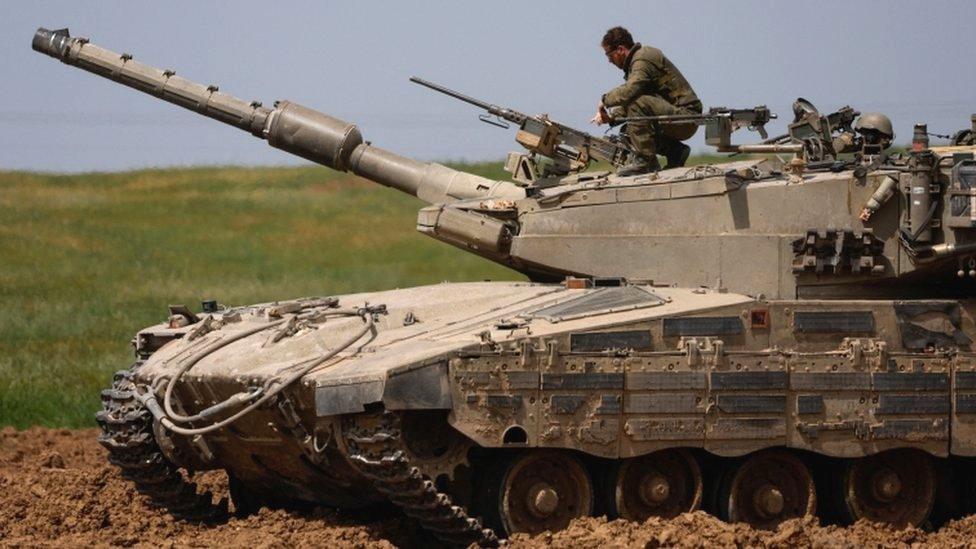Netanyahu doubles down on control of Gaza's border with Egypt
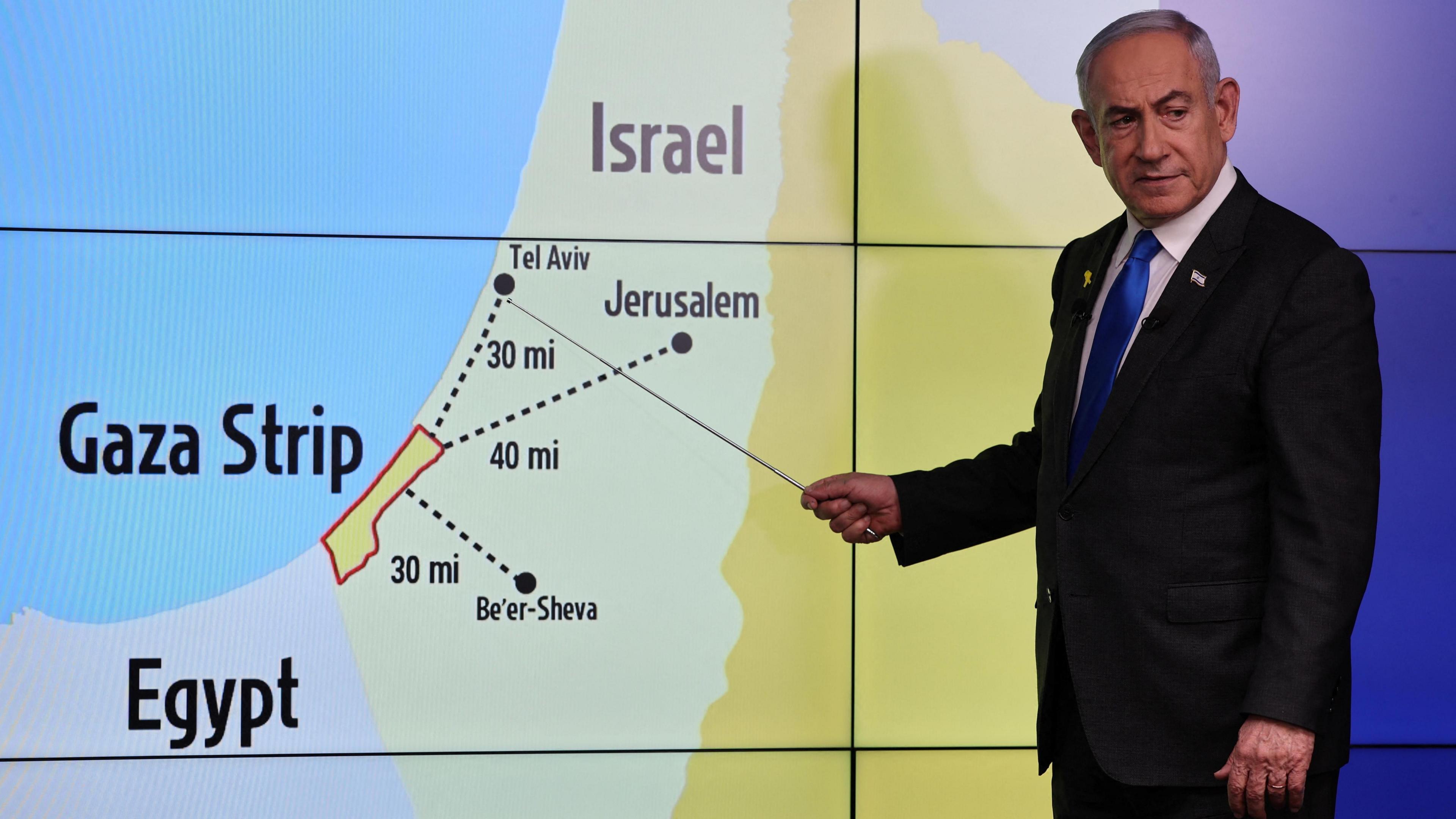
The map Mr Netanyahu used in his speech to foreign media appeared to have erased the occupied West Bank
- Published
Israel's prime minister, Benjamin Netanyahu, has again insisted that Israeli forces will not leave the Philadelphi Corridor - a strategically important strip of land in southern Gaza along the border with Egypt.
He told foreign media in Jerusalem that he is “open” to considering alternatives to the presence of Israeli troops along the Gaza-Egypt border, as part of any future permanent ceasefire deal – but that he did not see it happening.
Mr Netanyahu argued that Israeli troops must remain in this buffer zone to prevent weapons and possibly Israeli hostages being smuggled across the border.
Hamas said in a statement cited by Reuters news agency that Mr Netanyahu's decision not to withdraw from the Philadelphi corridor is an attempt to thwart the ceasefire agreement, adding that it was time to put pressure on Israel.
Earlier on Wednesday, Mr Netanyahu said conditions for any permanent ceasefire must include "a situation where the Philadelphi corridor cannot be perforated."
He said if someone could show, “not on paper, not in words, not in a slide, but on the ground, day after day, week after week, month after month that they can actually prevent the recurrence of what happened there before we're open to consider it.”
But, he continued, “I don’t see that happening […] And until that happens, we are there.”
His comments open a miniscule crack in his repeated insistence that Israeli forces would not leave Gaza’s southern border.
But he also doubled-down on his insistence that Israel needed to keep troops there for its security, describing it as a “red line”.
“People said: this will kill the deal,” he continued. “And I say: such a deal will kill us.”
Making more concessions after Hamas killed six hostages last week would be “illogical”, “immoral” and “insane,” he insisted.
“We have red lines. They haven’t changed. We’ll hold to them.”
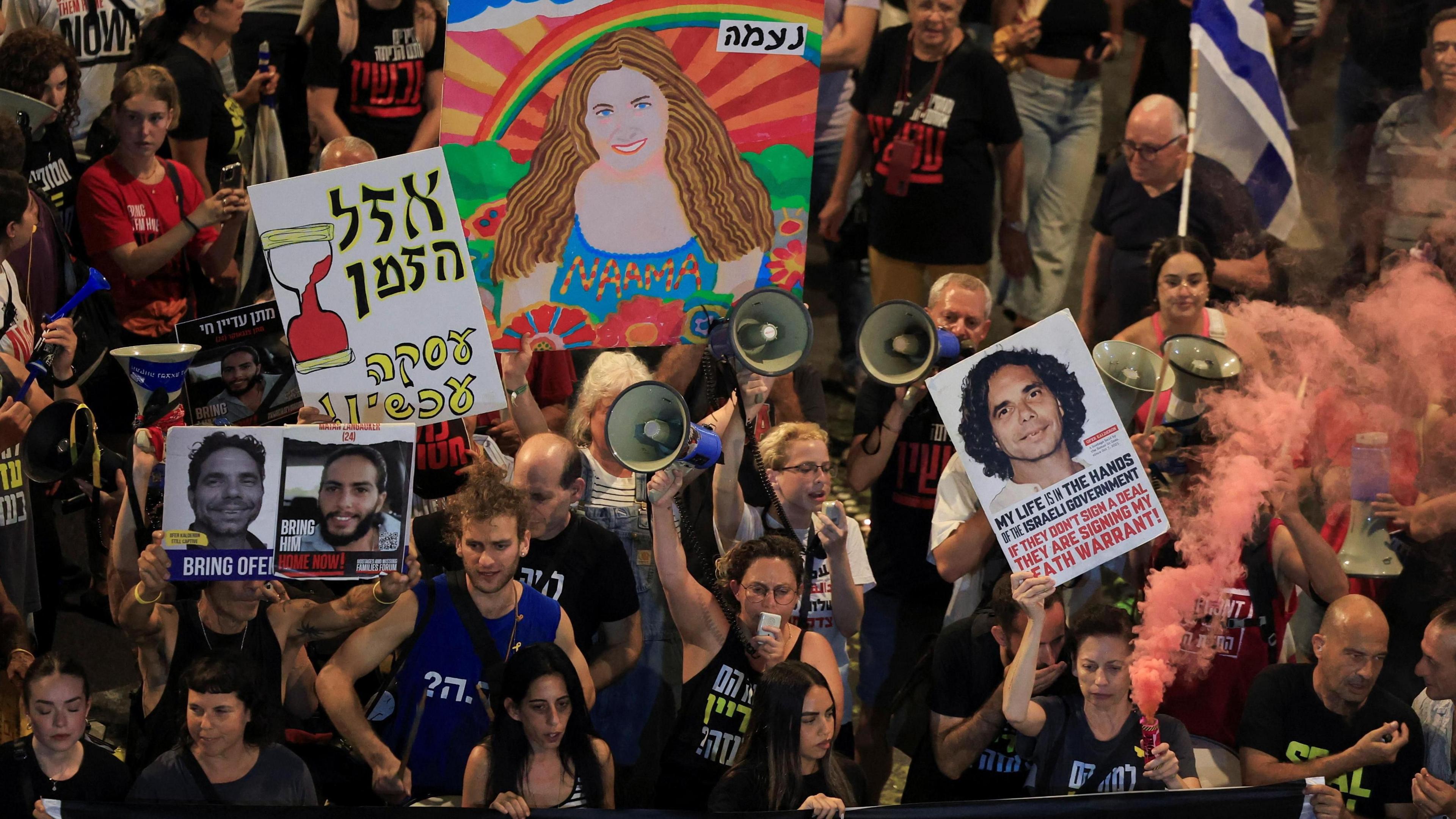
Thousands of people have joined protests in Israel, accusing Mr Netanyahu of sacrificing a ceasefire deal with Hamas that would bring the hostages home
His security chiefs, including his defence minister, are widely reported to have backed alternatives to a military presence along the border, such as technological solutions to monitor activity there, or the presence of allied forces.
Leaks to Israeli media have described shouting matches between the prime minister and his defence chiefs in meetings, with Mr Netanyahu reportedly accused of not wanting a deal at all.
A growing number of people here appear to believe that the prime minister is playing for time, and that his real goal is to find and kill the Hamas leader, Yahya Sinwar, before ending the war.
Mr Netanyahu says he is safeguarding Israel’s security in the face of extraordinary international pressure. And that it is Hamas who is blocking a deal.
Talks on a permanent ceasefire would only take place once Israel and Hamas agree to begin the first phase of a three-step plan, which is being pushed heavily by US President Joe Biden.
Israel’s national public radio quoted an unnamed senior official who said that the chief negotiator, Mossad head David Barnea, had conveyed to mediators Israel’s agreement to withdraw troops from the border at a later stage in the ceasefire process.
But even getting agreement on the first stage is proving tricky, with many issues still unresolved.
- Published27 August 2024
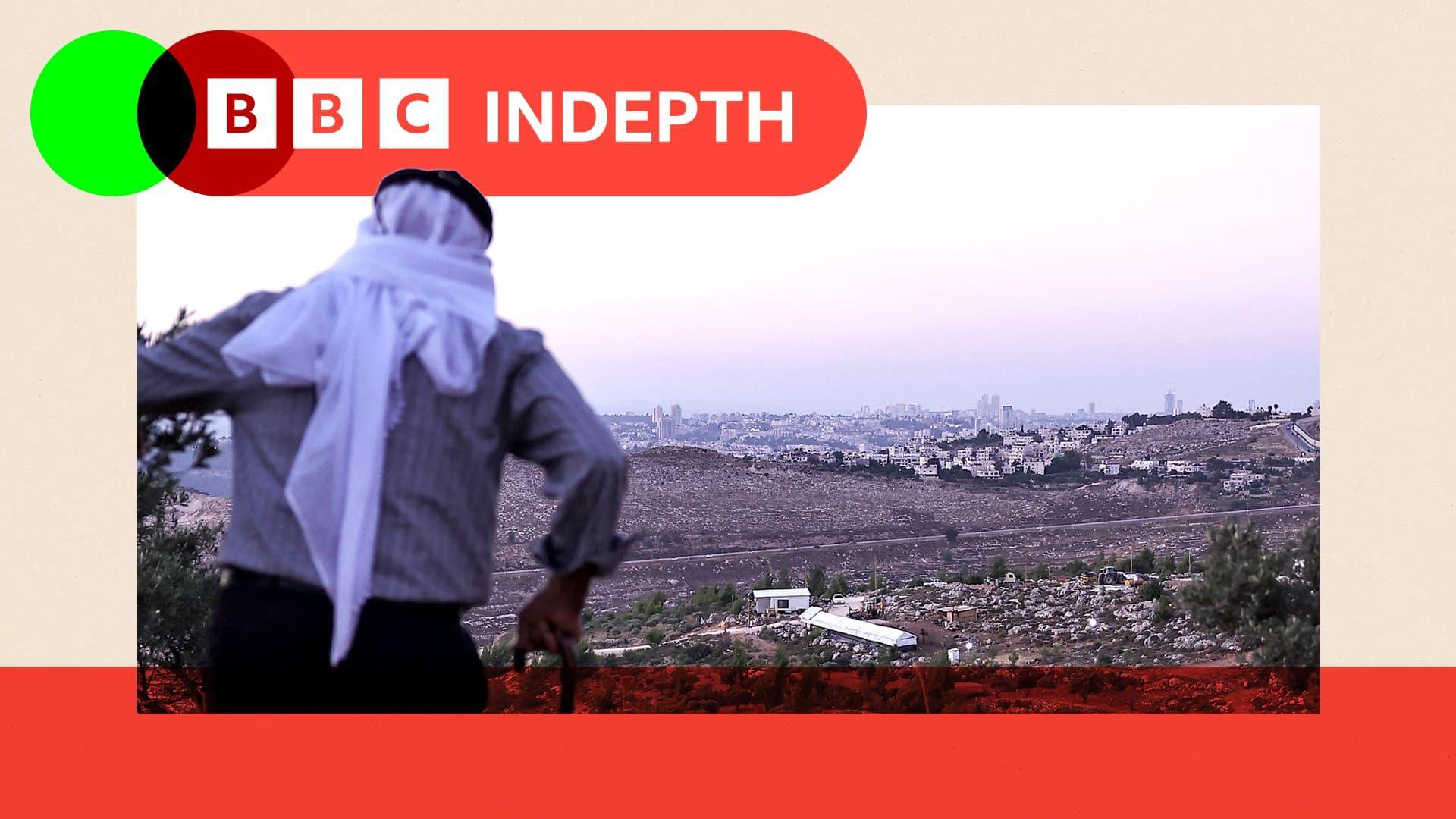
- Published2 September 2024
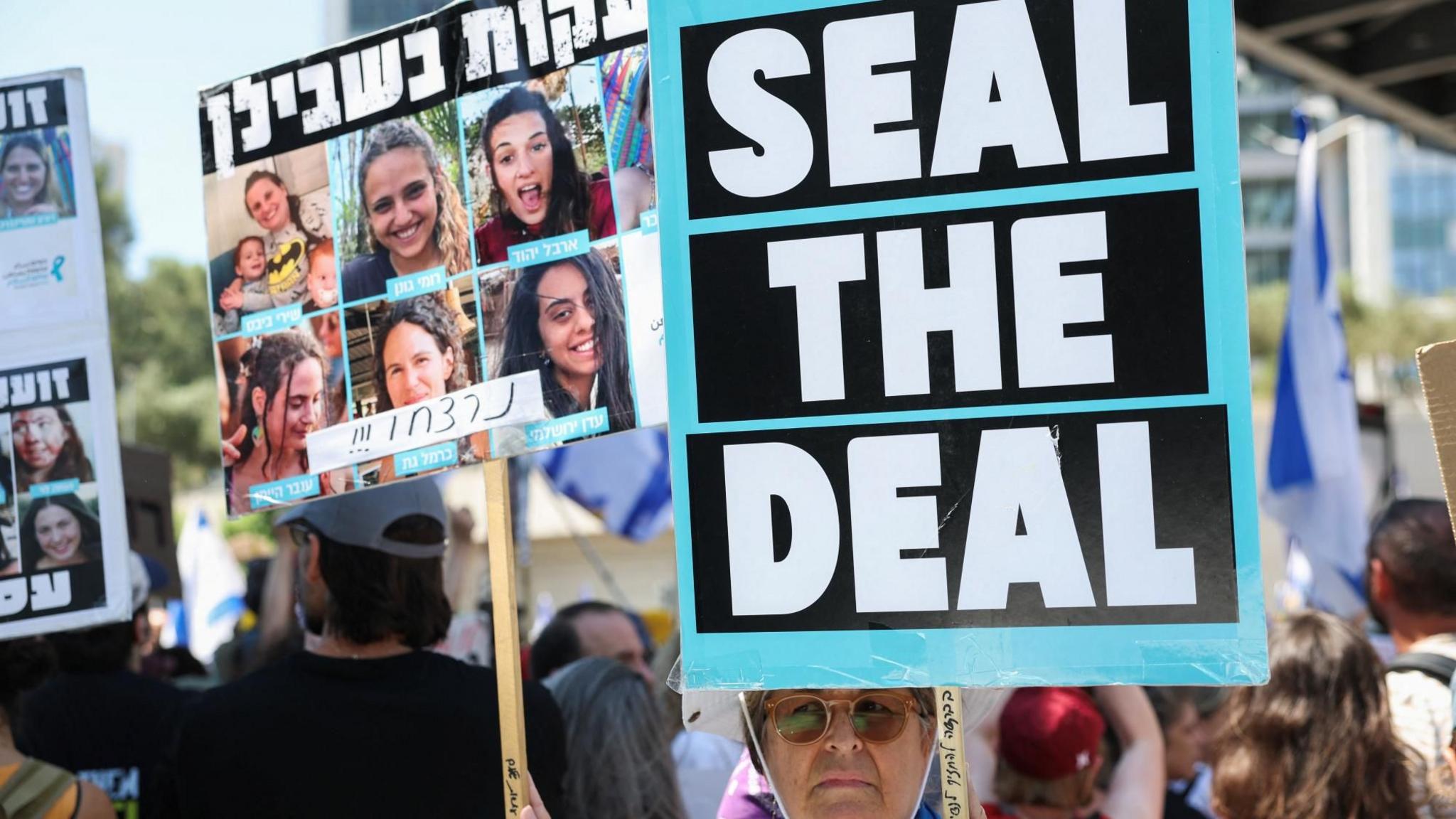
- Published3 September 2024
